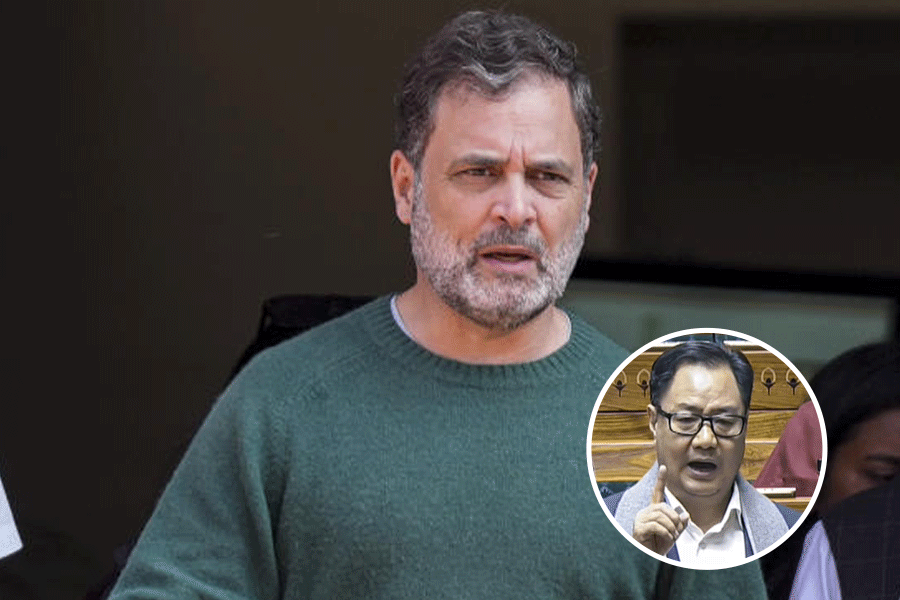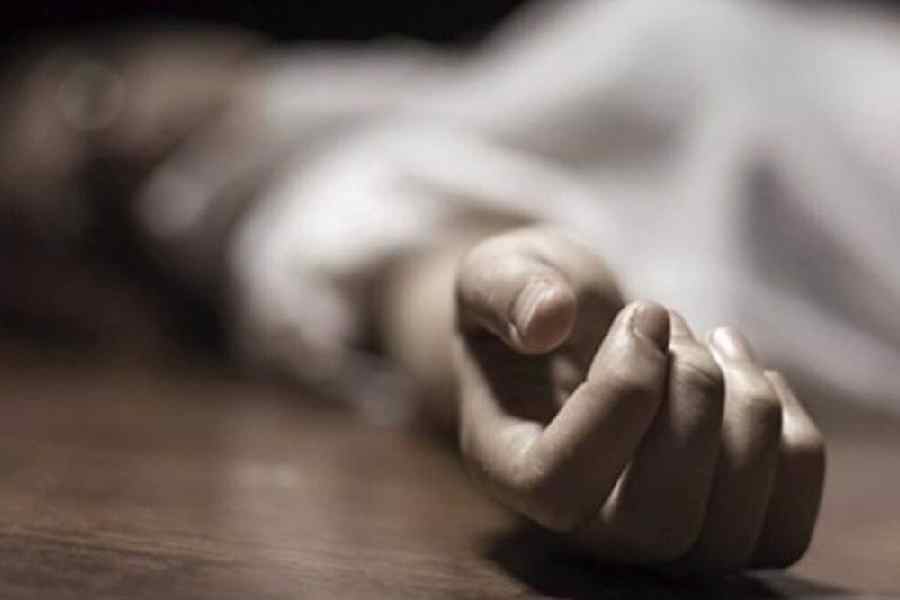 |
There’s trouble brewing in the world of sports — and Randhir Singh is maintaining a safe distance from the storm. Earlier this week, the International Olympic Committee (IOC) suspended the Indian Olympic Association (IOA). The newly-elected president of the now suspended IOA, Abhay Singh Chautala, has held Singh responsible for the suspension. And the veteran sports administrator says that while he won’t mind taking the credit, it just isn’t true.
“They brought it upon themselves. They defied every rule in the book and thumbed their noses at the IOC when it asked them to follow its code of conduct. I wish I was responsible for kicking them out,” says Singh, who was the secretary-general of the IOA, the only Indian on the IOC. Chautala and his supporters allege that Singh, a former claimant for the IOA president’s post, was involved in spreading “misinformation” against the IOA.
Singh — looking natty in his blue shirt, navy blue sweater, a matching jacket with a light-blue turban — describes the suspension of the IOA as a blessing in disguise. “We cannot leave the administration of sports in the hands of thugs. The suspension of the bullies has been a major embarrassment for India, but the time has come for the Indian sports administration to be cleaned up,” he says.
We are sitting out in the sun on the well-tended lawns of his sprawling white-walled and red-tiled bungalow in Delhi’s Chhattarpur area, where the rich and the famous have their farm houses. Singh is clearly in the midst of all that’s happening around him, and shows me a fax from the IOC threatening legal action against the suspended IOA members in case they use funds in the name of the body.
The IOA has been dominating the headlines for the last few days and today is no different. As television channels flash the news that India’s boxing and archery federations — headed by Chautala and V.K. Malhotra, respectively — have been de-recognised by the Indian government, Singh’s two Samsung Galaxy phones start ringing.
His associates celebrate the news with hugs and smiles, but Singh doesn’t betray any emotion except for wearing an I-told-you-so look on his face. “The whole thing is unravelling now. Let them find a way out,” he says.
But clearly being termed a “traitor” by the Chautala group has also left Singh a bit shaken. He instructs one of his staff members to accompany his daughter to the airport on her way to Bali to attend a seminar.
A member of the erstwhile royal family of Patiala, Singh in more ways than one is a rarity in the Indian sports administration. Most people at the top are either bureaucrats or politicians — but Singh was a sportsman. An ace shooter, he was the secretary-general of the IOA for 25 years.
“My family has been involved in sports administration for generations. And moreover, I knew how the system worked,” he says.
There is no questioning the first part of his remark. His father Bhalindra Singh, his uncle Yadavindra Singh and his grandfather Bhupender Singh were all sportsmen and administrators. Bhalindra Singh was the president of the IOA during the 1982 Asian Games in New Delhi.
Trophies, medals and pictures — of Singh and his ancestors — dot the walls and well-arranged shelves in the two-storey bungalow stand testimony to the sporting credentials of the Patiala royal family. But did Singh really know the system — which has routinely been blamed for India’s poor performances in international sports? “The system kept changing,” he says with a touch of irony.
Singh doesn’t shy away from admitting that belonging to the Patiala royal family helped — but not all the way, he hastens to add. “Family backgrounds help you in giving you a platform, but you have to do everything yourself after that. That’s what I did.”
As a youngster, Singh played cricket with the dream of making it to the Indian team one day. Cricket was in his blood — his father played first-class cricket and captained Southern Punjab in the Ranji Trophy in the 1940s and also played for Cambridge University in England. Young Randhir was a one-down batsman who also opened the bowling for his school (Yadavindra Public School, Patiala) and college (St Stephen’s, Delhi) teams.
But it was not until a close relative asked him to try his hand at shooting that he actually competed in a tournament.
“I was keen on hunting and my aunt, who was a national-level shooter, said that since I was a good hunter, I had to give it a try,” he recalls. And he went on to shoot down 25 out of 25 clay pigeons in his first round of a national competition that he participated in in 1963.
Cricketing dreams took a backseat as Singh started representing India within a year of his first win — and continued to do so for 30 years. He started with the Tokyo Olympics in 1964 and was a part of the Indian contingents as a player till the 1994 Atlanta Olympics. In between Tokyo and Atlanta, Singh won several medals at various international competitions. But his crowing glory came in 1978, when he won a gold medal at the Asian Games in Bangkok — the first shooter from India to win a gold medal at the Games.
Singh — who has been felicitated with the government’s Arjuna award — started young. He first handled a gun at the age of five and started hunting at 14. He was just fourteen and half when he shot his first tiger. “We were in the terai (foothills) in the May of 1961 when I shot my first tiger,” recalls Singh. “Hunting was great fun, but shooting the tiger was not the greatest of them as it was easier to hunt a tiger than birds or other wild animals,” he adds.
Singh was considered to be very close to Suresh Kalmadi, the former president of the IOA and the chief organiser of the Commonwealth Games in Delhi in 2010. They fell apart during the Games. “I was ashamed every time somebody introduced me as a sports administrator in social gatherings during and after the Commonwealth Games. I wanted to get far away from anything related to sports,” recalls Singh.
Why didn’t he do something about the mess in the Commonwealth Games instead of merely feeling ashamed, I ask him. “It is very difficult to fight and survive when 15 people sitting around you are thinking in one particular manner and my thoughts are on a different track. It is very sad, but such is the condition,” he says with a shrug.
India’s sporting woes, many contend, relate to the fact that bureaucrats and politicians — and not sportspeople — rule all bodies. But Singh doesn’t subscribe to the popular belief that most politicians enter sports bodies to make a quick buck and go on foreign jaunts in the name of sports tournaments. “Most politicians are on sports bodies not for the money but for the recognition. And most of them cannot get a single column in a newspaper if they are not part of some sports body,” Singh chuckles.
He has a different take on corruption too. “There isn’t much scope for corruption in 90 per cent of the federations as they get little money from the government,” he says.
Singh is 66, but he may still be nursing the dream of heading the IOA one day. He also insists that he will only stick to sports administration. “I was asked by the late Rajiv Gandhi to take a plunge into politics. But I decided that this was my domain and I would stick to it,” he says.
Of course, the family has its representatives in politics — led by his cousin, former Punjab chief minister Amarinder Singh, and his wife, Preneet Kaur, who is a minister of state in the external affairs ministry. “They are doing a great job and I will do mine,” Singh says.
It’s not that the Patiala family is not ready with its next generation of administrators. In fact, the scions are already in place. While his nephew Raninder Singh is the president of the National Rifle Association of India, his daughter Sunaina Kumari is the president of the Bowling Federation of India. Family name comes in handy again? “They have to work hard to survive and deliver. And they are doing a great job,” Singh says.
As for his shooting legacy, Singh says that he pins his hopes on Rajeshwari Kumari, the youngest of his three daughters. “I hope she will make it to the national team next year. It will be tough, but I hope she will be a fighter,” Singh says.
And on Singh’s own future, he doesn’t want to reveal his cards right now. But going by the enthusiasm of his associates, it seems that he is bracing for a long and hard battle ahead.










